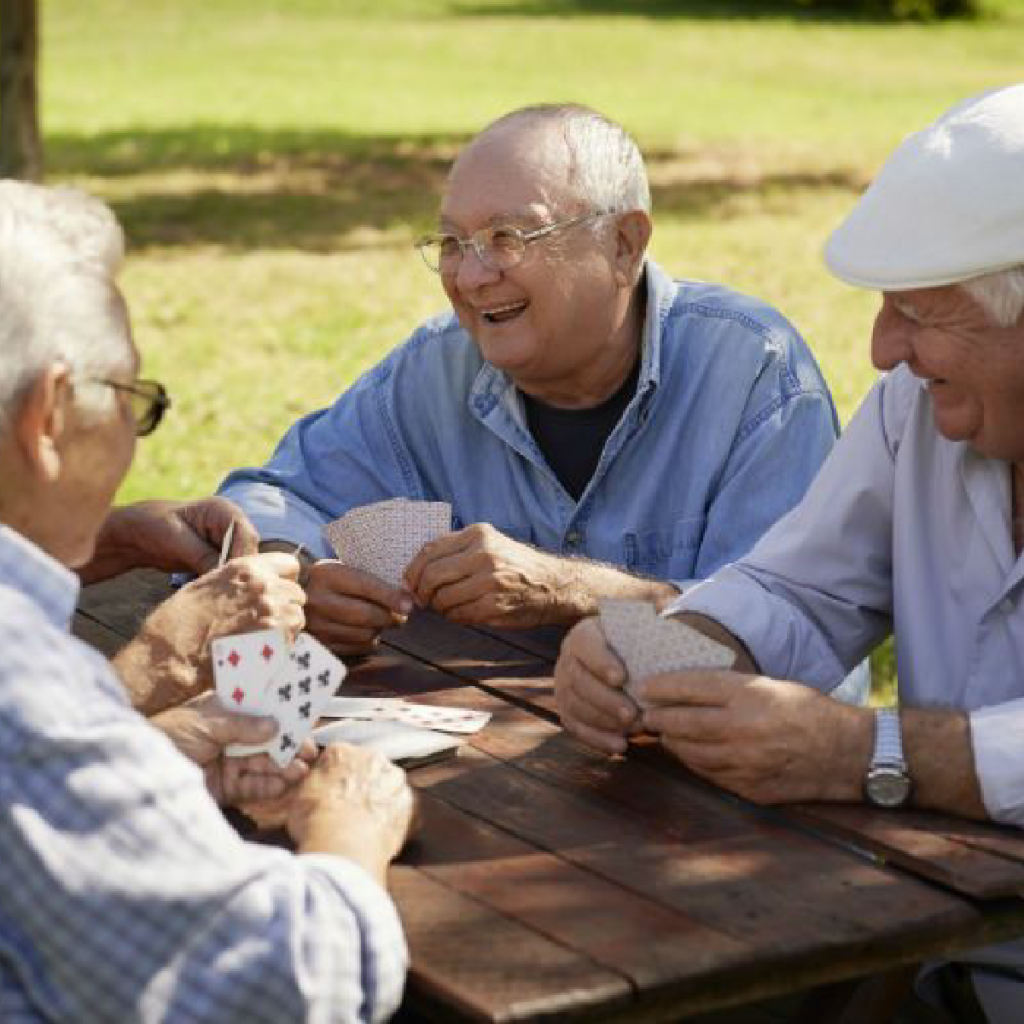Discover the potential benefits of therapy or counseling for older men.
Can Therapy or Counseling Benefit Older Men?
Therapy or counseling, often seen as an emotional sanctuary, can be just as transformative for older men. Despite the stigma that surrounds seeking help, therapy has become an increasingly popular avenue for men to explore their emotional well-being. In this article, we will delve into various aspects of therapy that can benefit older men, debunking stereotypes and highlighting its positive impact.

Understanding the Stigma Around Therapy for Men
When it comes to seeking therapy, men often face unique challenges. Historically, societal expectations of men have favored stoicism, toughness, and emotional restraint. This perpetuated the unfortunate notion that seeking help equates to weakness, making therapy a daunting prospect for many men.
However, times are changing. Slowly but surely, men are challenging these stereotypes and embracing the benefits that therapy can provide. By acknowledging and addressing the stigma head-on, older men can break free from the chains that have held them back for far too long.
Historical Perspectives on Men and Mental Health
The belief that men should be strong and self-reliant is deeply rooted in history. Throughout the centuries, men were expected to be providers and protectors, leaving little room for vulnerability or emotional expression. This ingrained societal expectation often led to unseen mental health struggles in older men.
For example, during times of war, men were expected to exhibit unwavering strength and bravery on the battlefield. The emotional toll of witnessing violence and experiencing trauma was often dismissed, and men were left to cope with their psychological wounds in silence. As a result, many older men today carry the weight of these unresolved traumas, impacting their mental well-being.
Furthermore, societal norms dictated that men should be the primary breadwinners, responsible for financially supporting their families. This pressure to succeed and provide for loved ones created immense stress and anxiety, which often went unaddressed. The inability to openly discuss these concerns and seek emotional support only exacerbated the mental health challenges faced by older men.
Challenging Stereotypes: Men and Emotional Expression
One of the key barriers for older men is the difficulty they face in expressing their emotions. Society has traditionally discouraged men from openly discussing their feelings, leading to a buildup of unresolved emotional baggage. Therapy provides a safe space for men to unravel their thoughts, feelings, and experiences, ultimately leading to improved emotional well-being.
By engaging in therapy, older men can learn healthy ways to express their emotions and develop effective coping mechanisms. Through guided sessions, they can explore the root causes of their emotional struggles and work towards healing and personal growth.
Moreover, therapy offers older men the opportunity to challenge societal expectations and redefine what it means to be a man. It encourages them to embrace their vulnerability and recognize that seeking help is a sign of strength, not weakness. By breaking free from the confines of traditional masculinity, older men can pave the way for a more inclusive and supportive society.
Additionally, therapy provides a platform for older men to connect with others who may share similar experiences and struggles. Group therapy sessions, for instance, can foster a sense of camaraderie and support among men, creating a space where they can openly discuss their challenges and learn from one another’s journeys.
In conclusion, the stigma surrounding therapy for men is deeply rooted in historical expectations and societal norms. However, as men challenge these stereotypes and embrace the benefits of therapy, they can break free from the chains that have held them back. By providing a safe space for emotional expression and personal growth, therapy empowers older men to improve their mental well-being and redefine what it means to be a man in today’s society.
The Unique Mental Health Challenges of Older Men
As men grow older, their mental health needs evolve. Issues such as the impact of aging and social isolation can significantly affect older men’s well-being. Recognizing and addressing these challenges is paramount to ensuring that older men can lead fulfilling lives.
When it comes to the impact of aging on mental health, older men face a unique set of challenges. As the years go by, various factors associated with aging can take a toll on their mental well-being. Health concerns, such as chronic illnesses or mobility issues, can lead to feelings of anxiety and depression. The fear of losing independence and becoming a burden on loved ones can also contribute to these negative emotions.
Moreover, the loss of loved ones becomes more common as one ages. Older men may experience the passing of close friends, siblings, or even a spouse. Dealing with grief and the loneliness that follows can be overwhelming. It is essential for older men to have access to therapy and support services to help them navigate these difficult emotions and find healthy ways to cope.
Changes in physical abilities can also have a significant impact on the mental health of older men. As they age, they may face limitations in mobility, strength, or cognitive function. These changes can lead to frustration, feelings of inadequacy, and a loss of self-esteem. Therapy can provide older men with the support and guidance they need to adjust to these changes, maintain a positive self-image, and find new ways to engage in activities that bring them joy.
Another challenge faced by older men is the increasing prevalence of social isolation and loneliness. Retirement, the loss of a spouse or close friends, and limited social connections can leave older men feeling isolated and disconnected from their community. The lack of social interaction can have a detrimental effect on their mental well-being, leading to feelings of loneliness, depression, and a decline in cognitive function.
Through therapy, older men can work on building new social supports and enhancing their overall well-being. Therapists can help them develop strategies to combat social isolation, such as joining community groups, volunteering, or participating in hobbies and activities that allow for social interaction. Additionally, therapy can provide a safe space for older men to express their feelings of loneliness and explore ways to cultivate meaningful connections.
The Role of Therapy and Counseling in Addressing Mental Health
Therapy offers a wealth of benefits for older men, addressing a range of mental health concerns and equipping them with the tools to navigate life’s challenges. It is a powerful resource that can provide support, guidance, and healing for individuals experiencing various mental health issues. From anxiety and depression to grief and trauma, therapy offers a safe space for older men to explore their emotions and find effective coping strategies.
There are various types of therapy available, each with its unique advantages and approaches. One such approach is cognitive-behavioral therapy (CBT), which aims to identify and change negative thought patterns, helping older men reframe their experiences. By challenging distorted thinking and replacing it with more rational thoughts, CBT can empower individuals to manage their emotions and improve their overall well-being.
Group therapy is another valuable option for older men seeking support and connection. It provides a supportive environment where men can share their struggles and learn from one another’s experiences. Group therapy fosters a sense of community and belonging, reducing feelings of isolation and promoting social interaction. Through the power of shared experiences, individuals can gain new perspectives and develop a network of support.
Different Types of Therapy and Their Benefits
Therapy is not a one-size-fits-all approach, and it is essential to consider the specific needs and preferences of older men when choosing a therapeutic modality. In addition to CBT and group therapy, there are other effective types of therapy available.
Psychodynamic therapy, for example, focuses on exploring unconscious patterns and unresolved conflicts that may contribute to mental health issues. By delving into the root causes of emotional distress, this therapy can help older men gain insight into their behaviors and develop healthier ways of relating to themselves and others.
Another approach is mindfulness-based therapy, which incorporates meditation and mindfulness practices to cultivate present-moment awareness and acceptance. This type of therapy can be particularly beneficial for older men who may be facing age-related challenges and seeking a greater sense of peace and acceptance in their lives.
Regardless of the specific type of therapy chosen, the benefits are numerous. Therapy can provide a safe and non-judgmental space for older men to express their emotions, process their experiences, and gain a deeper understanding of themselves. It can help them develop effective coping strategies, improve their relationships, and enhance their overall quality of life.
How Therapy Can Help with Aging-related Mental Health Issues
Specifically designed to address the challenges older men face, therapy can help navigate the mental health complexities of aging. As individuals age, they may encounter various physical, emotional, and social changes that can impact their mental well-being. Therapy can provide the necessary support and guidance to navigate these changes successfully.
By exploring emotional experiences, therapy can assist older men in developing resilience, creating new goals, and adapting to life’s changes. It can help them process feelings of loss, grief, and loneliness that may arise as a result of aging. Through therapeutic interventions, individuals can learn healthy coping mechanisms and develop a positive mindset, enabling them to embrace their golden years with a sense of purpose and fulfillment.
Furthermore, therapy can also address age-related mental health conditions such as dementia and Alzheimer’s disease. Therapists trained in working with older adults can provide specialized interventions that promote cognitive functioning, memory retention, and emotional well-being.
In conclusion, therapy is a valuable resource for older men seeking to address their mental health concerns. It offers a range of approaches, each tailored to meet individual needs and preferences. By providing support, guidance, and healing, therapy equips older men with the tools to lead fulfilling lives during their golden years.
Barriers to Seeking Therapy for Older Men
Despite the evident benefits, there are still barriers that prevent older men from seeking therapy. These barriers can stem from societal expectations and deeply ingrained personal beliefs. However, breaking down these barriers is essential to ensure that older men can access the support they need.
Societal and Personal Barriers
The societal expectation that men should be self-reliant and strong can discourage older men from seeking therapy. Additionally, personal beliefs that therapy is unnecessary or ineffective may hinder older men from embracing its potential benefits. Recognizing and dismantling these barriers is crucial in creating a more inclusive and supportive environment.
Overcoming Barriers: Steps Towards Seeking Help
Overcoming these barriers requires a combination of self-reflection and support from loved ones. Encouraging open conversations about mental health and destigmatizing therapy can empower older men to take the first step towards seeking help. Providing information about the benefits of therapy and sharing success stories can also alleviate any doubts older men may have.
The Positive Impact of Therapy on Older Men’s Lives
The benefits of therapy for older men extend far beyond improved mental health. Therapy can positively influence various aspects of their lives, ultimately leading to enhanced emotional well-being and stronger relationships.

Improved Emotional Well-being and Quality of Life
By working with a therapist, older men can learn valuable coping mechanisms, gain insight into their emotions, and develop healthier ways of expressing themselves. This newfound emotional well-being transcends into all aspects of life, allowing older men to experience a heightened sense of joy and satisfaction.
Strengthening Relationships Through Therapy
Therapy can also play a significant role in strengthening relationships. By developing effective communication skills and fostering emotional intimacy, older men can form deeper connections with their loved ones. Improved relationships lead to increased support networks, creating a stronger foundation for overall well-being.
In conclusion, therapy and counseling undoubtedly hold immense potential in benefiting older men’s mental health. By challenging stereotypes, understanding unique challenges, and addressing barriers, older men can embrace therapy as a valuable tool for personal growth and emotional well-being. By taking that first step towards therapy, older men can unlock a world of transformation and live their best lives.






